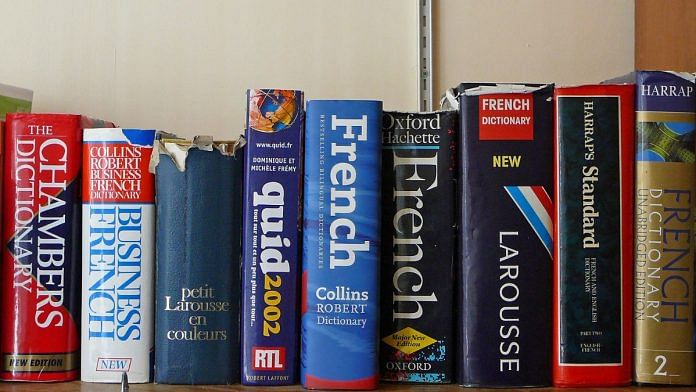-
Dictionaries around the world have selected their own ‘word of the year’ for 2022.
-
From ‘goblin mode’ to ‘war’, the winners reflect on the challenging 12 months society has faced.
-
Find out what words were chosen, and if they resonate with the year you’ve had.
The year 2022 has been full of abrupt and shocking changes. But what words define the past 12 months for the world?
Dictionaries around the globe have released their words of the year, ranging from ‘gaslighting’ to ‘permacrisis’.
The words of the year are typically selected by dictionaries based on search data, with the winning word deemed to reflect the “mood or preoccupations of the year”.
The 2022 ‘word of the year’ by different dictionaries
Here’s a selection of five words of the year that shed light on 2022.
1. Goblin mode
For the first time ever, the Oxford English Dictionary’s (OED) word of the year was left to the public to decide. Over 340,000 people participated, with ‘goblin mode’ receiving 93% of the total votes.
The OED defines it as “a type of behaviour which is unapologetically self-indulgent, lazy, slovenly, or greedy, typically in a way that rejects social norms or expectations”.
The term was first coined on Twitter in 2009, but entered popular culture when the term went viral on social media in February 2022.
Goblin mode seemingly captured the mood of individuals who rejected the idea of returning to a ‘normal life’ post-pandemic as people started to leave their homes more often.
Alternatively, it can also refer to rebelling against the “increasingly unattainable aesthetic standards and unsustainable lifestyles exhibited on social media”, the OED says.
According to the Oxford Corpus, one example of goblin mode is “like when you wake up at 2am and shuffle into the kitchen wearing nothing but a long t-shirt to make a weird snack, like melted cheese on saltines”.
Casper Grathwohl, President of Oxford Languages explained that “people are embracing their inner goblin, and voters choosing ‘goblin mode’ as the Word of the Year tells us the concept is likely here to stay”.
2. Gaslighting
Merriam-Webster dictionary chose ‘gaslighting’, after a 1,740% rise in searches for the term this year.
According to the OED it means “manipulating (a person) by psychological means into questioning his or her own sanity”.
The word comes from a 1938 play, Gas Light, in which a man tries to make his wife believe she’s going mad.
One common example of gaslighting is the ‘I’m sorry you feel that way’ approach, along with avoiding an argument in lieu of admitting fault, according to Psychology Today.
3. Woman
Dictionary.com crowned ‘woman’ as its word of the year, after a 1,400% spike in searches over 2022.
The word was frequently searched as people explored what it meant amid debates over transgender rights.
While Dictionary.com defines the word as “an adult female person”, it also emphasizes that “the word belongs to each and every woman – however they define themselves”.
4. Permacrisis
Collins Dictionary describes ‘permacrisis’ as “an extended period of instability and insecurity”.
The world has certainly faced a variety of crises this year, from the war in Ukraine to the cost-of-living crisis.
In its Language Lovers’ blog, the dictionary says the term “perfectly embodies the dizzying sense of lurching from one unprecedented event to another, as we wonder bleakly what new horrors might be around the corner”.
Japan’s kanji of 2022, decided by public vote, was the one denoting war or battle ‘戦’, the Guardian reported.
In a year marked by the war in Ukraine, some Japanese voters said this character most reflected their feelings about the state of the world. Others, meanwhile, cited the drama of recent sporting events such as the Winter Olympics in Beijing and the World Cup as influencing their decision.
Tom Crowfoot, Writer, Formative Content
The article originally appeared in the World Economic Forum.
Also read: Handwashing shouldn’t just be about Covid. It can give a 92-fold return to India’s economy



